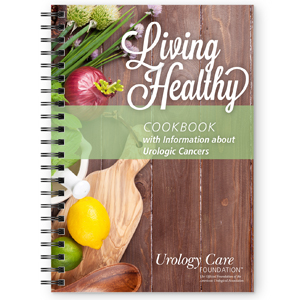Mindfulness may improve your urologic health
Stress can affect our physical and mental health in many ways. Constant stress can lead to problems including high blood pressure, heart disease, obesity and diabetes. Research suggests stress can also affect our urologic health.
For instance, stress can increase the chances of developing a urinary tract infection (UTI). That’s because when we are stressed, our bodies release a hormone called cortisol. This reduces our immune response, which can lead to UTIs.
Stress can result in the need to urinate more often. Being very anxious and stressed can trigger your body’s “fight or flight” response. This can lead to urinary urgency, frequency and urine leakage. Stress may cause flare-ups of interstitial cystitis or painful bladder syndrome which is a condition associated with bladder pain, and pressure. It may also worsen symptoms in people with overactive bladder (OAB).
Having any of these conditions can also increase a person’s stress, because you are always worried you may not be able to make it to the bathroom in time. This creates an unhealthy cycle.
What is mindfulness meditation?
One way to reduce stress is mindfulness meditation. Mindfulness has two main parts: attention and acceptance. First you turn your attention to your breath, thoughts and physical sensations in your body and the feelings you are having. Then you observe those feelings and sensations without judging them, and let them go.
What does mindfulness do?
Research has found that mindfulness-based therapy is especially effective for reducing stress, anxiety, depression and pain. Mindfulness can reduce the sense of dread that comes with having a urinary problem. It can calm a person down, which can prevent episodes of leakage.
How to get started
There are mindfulness-based programs that include breathing exercises, yoga and guided lessons. You can find mindfulness-based online programs or smartphone apps.
You can also try mindfulness on your own.
- Breathe in through your nose to a count of 4, hold for 1 second and then exhale through the mouth to a count of 5. Repeat often.
- As you walk, pay attention to your breath and the sights and sounds around you. If thoughts and worries enter your mind, note them but then return to the present.
- Eat mindfully. Be aware of taste, textures and flavors in each bite. Notice when your body is hungry or full.
- Bring your attention to how each part of your body is feeling. This can help you connect with your body.
This comforting, nourishing soup recipe, courtesy of Chef Mary Nolan, has a mix of protein, vegetables and love. It can be made in advance and stored in the fridge to enjoy for up to 5 days later.

Chef Mary Nolan is a recipe developer, cooking instructor, host and enthusiastic eater. She is currently the Executive Chef at Bon Appétit magazine.
“You eat with all of your senses. Recipes curated by color will look beautiful and help you enrich your meals.”
Eating healthy may play a role in cancer prevention. Many cancers are linked to excess weight. Healthy eating also helps people during cancer treatment and recovery. Chemotherapy, surgery, radiation therapy and other cancer treatments can take a toll on the body. They may affect taste, smell, appetite and the ability to absorb nutrients from food.
If you or someone you love is dealing with cancer, talk with your doctor or care team about what is best to eat and drink during cancer treatments. They may refer you to a dietitian who can help you with your diet during and after treatments.
Here are some living healthy basics you can apply:
Stay Hydrated
Your body needs a certain amount of liquid to function well. This is called hydration. Water, fruits, vegetables, smoothies, some soups, decaffeinated tea and unsweetened drinks are some examples for how to keep hydrated.
Eat Healthy
When choosing foods, try reaching for whole fruits, vegetables, legumes (like peas or beans) and other low-calorie options. Consider eating whole grains instead of refined grains. For example, choose whole-grain bread, pasta and cereal instead of refined foods like pastries, white rice or sugary cereals.
Check Nutrition Labels
Learn what to look for on the label. The US Food and Drug Administration (FDA) requires food companies to provide certain information on the nutrition labels printed on food packages. Nutrition labels can be filled with useful clues. When you eat something from a box, bag or fast food restaurant, look for options with less sugar, salt and calories.
Commit to Exercise
A doctor-approved workout may strengthen your body, improve your hormone levels and the way your immune system works. Even a little exercise to keep active can make a difference.
Stop Tobacco Use
Tobacco can cause cancer. There are benefits to stopping tobacco use at any age. Talk to your doctor if you are having trouble quitting the use of tobacco.
Plan Ahead for Travel
Pack healthy snacks for long trips or doctor visits. Try packing a small cooler with hummus and vegetables or apples and peanut butter. Or keep it simple with whole-grain crackers or trail mix. When you eat out, try to choose salads or grilled items instead of fried foods. When grocery shopping on the road, look for low-fat prepared meals, salads or rotisserie chicken options.

Cookbook funding and support provided by Pfizer Oncology.
UrologyHealth.org | WINTER 2022-2023 | UROLOGYHEALTH extra